Junior doctors' strike: 'I am moving to Australia permanently'
- Published
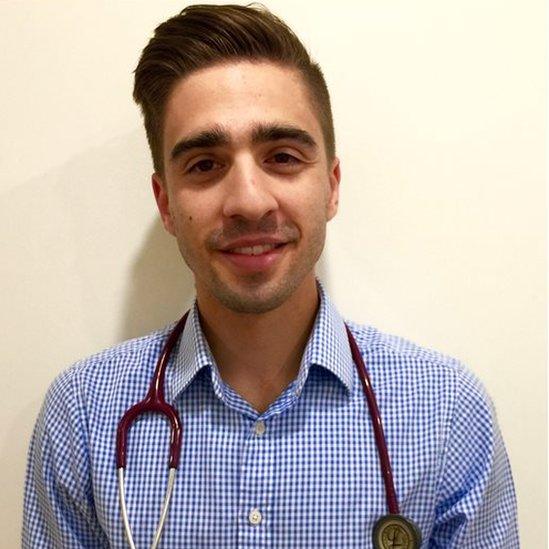
Jason Seebaluk
Fears have been raised that some junior doctors could quit their jobs in the UK for work overseas if new contracts come into force.
Dr Jason Seebaluk, 27, works in Euston, London. He is moving to Australia permanently in August because of the government's proposed amendments to junior doctors' contracts, which will see a change in pay and working hours.
The government believes the changes are needed to enable them to rota more doctors on at weekends and that the new contract is a good deal for junior doctors.
The General Medical Council says so far this year, it has issued more than 2,200 Certificates of Current Professional Status which doctors need in order to work abroad, although not all who request them actually leave.
The Department of Health have said the figures do not reflect the actual number of doctors planning to leaving the UK. They added: "Our latest data shows only 90 fewer training places have been filled this year compared to last and we still have two more recruitment rounds to go."
Today's strike is the fourth junior doctors' protest to date, with further strikes in emergency care scheduled at the end of April.
BBC News has been speaking to Dr Seebaluk and other junior doctors who are considering their future:

'The NHS is in a mess'
"I am finishing my foundation year two and in August, I will be moving to Australia permanently," says Dr Seebaluk.
"I have always wanted to gain some experience working overseas but because of the proposed changes to junior doctor contracts I am quite certain my fiancee and I will now settle in Australia for good.
"I am passionate about medicine and I realise this is the country where I was raised, but currently the rotas we are on just do not allow for any kind of work-life balance.
"The NHS is a great example of how medicine should be practised around the world but it is in a bit of a mess at the moment."
"I do feel a sense of guilt leaving but I have to think about my future."
Live updates as junior doctors strike
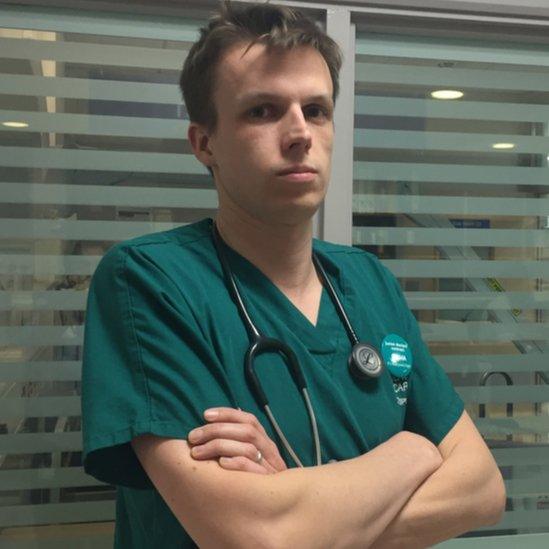
Dagan Lonsdale
'Brain drain inevitable'
Dr Dagan Lonsdale works at St George's Hospital in south London. He believes thousands of doctors have a similar story and will move overseas to places like Australia or the Middle East if new contracts come into force in England.
Dr Lonsdale, 32, an intensive care registrar in clinical pharmacology, believes the lure of working abroad could lead to a brain drain of NHS junior doctors.
"My wife and I are both doctors.
"We moved to Australia in 2011 and returned in 2012 because we wanted to work in the NHS.
Doctors' recruitment drive
"We believe in its core values, but we think trying to stretch five days staffing over seven will inevitably lead to doctors working excessive hours, and the reduction in safeguards to prevent this puts our ability to deliver safe care at risk.
"We are now considering our options, one of which may be to leave to work overseas again.
"I know there is an attempt to lure British medics overseas. I receive regular emails from recruitment agencies. Until recently, I used to ignore them.
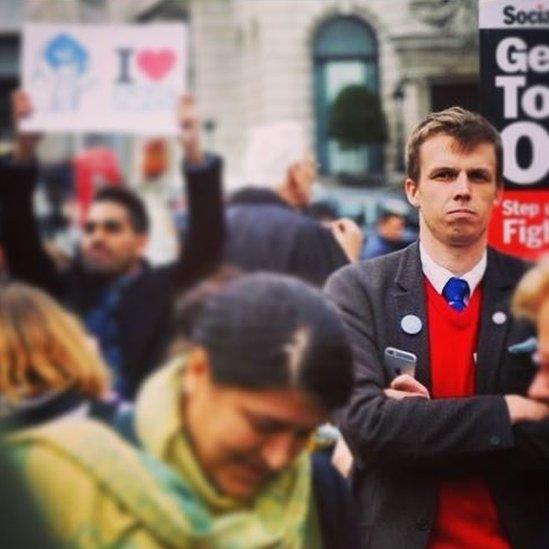
Dagan Lonsdale taking part in a protest
'Crisis of epic proportions'
"I have an 18-month-old son and it's not an unreasonable expectation to want to spend time with him and my family. Doctors are people too.
"I always work weekends and have worked seven Christmases since qualifying.
"I expect to work antisocial hours, but I believe increasing the amount of these hours will stop me being able to provide a family life for my son.
"The appeal of working overseas is understandable. In Australia, a 36-hour week is common, as employers know junior doctors who are tired make mistakes.
"In addition, doctors are expected to report any breaches of working hours. The health and safety of doctors and patients is inbuilt in the Australian system.
"I believe a junior doctor brain drain is inevitable if this contract is imposed, and that will lead to a crisis in the NHS of epic proportions."

What does the GMC say?
In 2015, more than 8,000 CCPS requests were granted to UK doctors.
The General Medical Council says: "Applications spiked in September last year because of a social media campaign when doctors began to protest against the proposed change to employment contracts.
"We were unable to distinguish between doctors making a protest application and those actually considering working abroad.
"The number of doctors registered in the UK has also risen year on year. This has been followed by a rise in CCPS requests."

Working in Australia
Dr Thea Bishop moved to Australia two years ago. She had intended to return but has decided to stay on partly because of the new contracts.
"I left my job as a junior doctor in the NHS in August 2014. I decided to go to Australia for a year to gain some experience and complete my emergency medical training.
"But over a year on and I have no desire to return and these new contracts play a big factor in that decision.
'Tough being far from home'
"Working in Australia, I feel valued, I am rested in between my shifts. I can choose when to take leave. I still work incredibly hard as it is a very demanding job but I come into work every day enthusiastic, and that is something I didn't feel working in the NHS.
"Working here allows me to care for my patients safely, and sensitively. I don't want to have a rushed consultation, especially if I'm breaking bad news.
"Many of my colleagues back in the UK are leaving the profession altogether.
"I know that where I work we receive lots of inquiries from doctors in the UK looking for jobs in Australia."
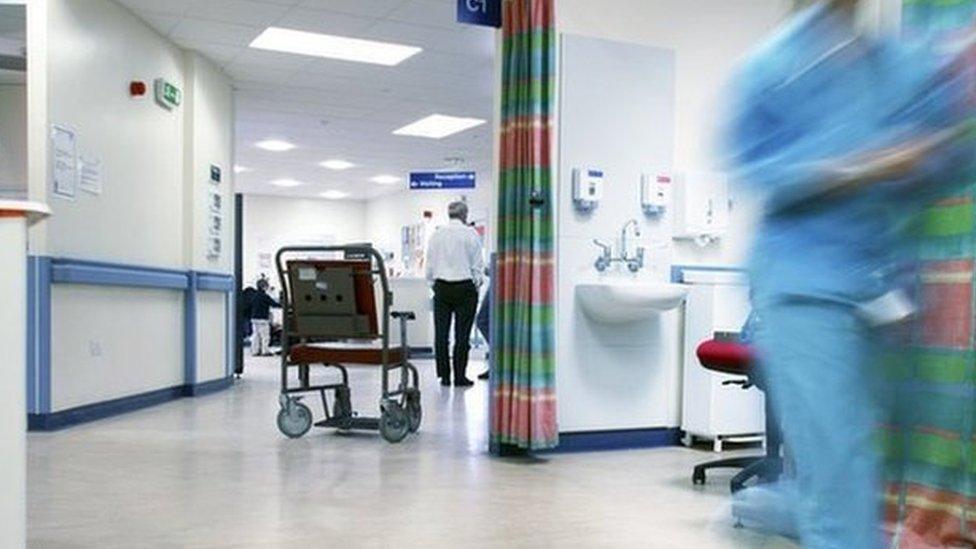
"It's not an easy decision to continue living here. My family lives in the UK, as does my husband's, and it can be tough being so far from home.
"I never intended to stay here and neither did the other 15 junior doctors in our group who moved to Australia 18 months ago.
"Out of just our group, only three have returned and of those three, only one is going back to the NHS.
"I do feel sad about 'jumping ship' but we have to protect our physical, and emotional wellbeing."

- Published6 April 2016
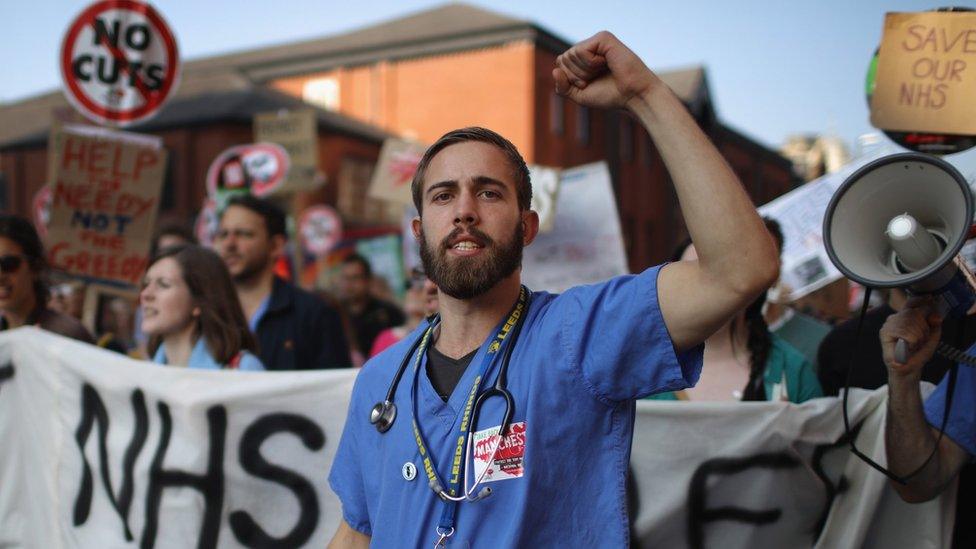
- Published12 February 2016
- Published11 February 2016
